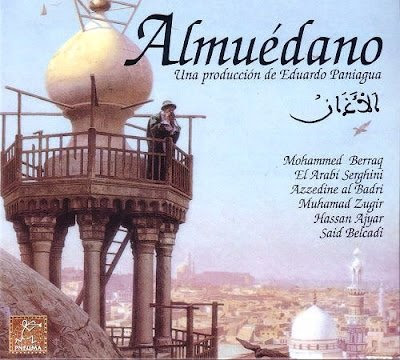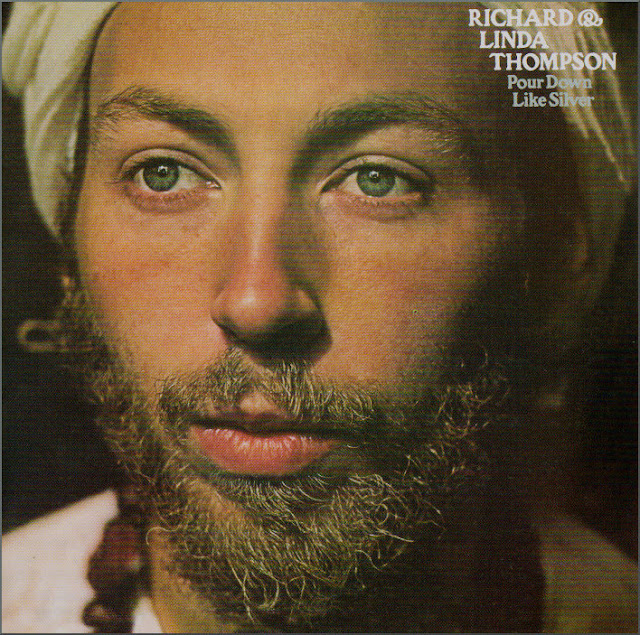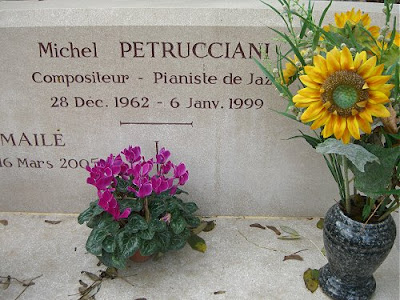Multiculturalism beyond Big Music
But the storm of cries over the city reassured me. It made the single human voice, particularly the one inside one’s head, sound petty and unimportant. Meanwhile, the universal, stereophonic sound, bouncing from one side of the valley to the other, constricted space. It made the towering escarpments that surrounded the city seem to loom and drape, as if they had picked up and advanced a little bit during the day while the citizens napped and chewed their qat.That evocation of the Muslim call to prayer by the muezzin comes from a new book by Theo Padnos. It introduces a post which both celebrates the start of Ramadan and offers an alternative to Big Music's upcoming multicultural media fest at the BBC Proms.
I recently described Jordi Savall and Montserrat Figueras’ new Jeanne d’Arc – Batailles & Prisons as being more audio verité than music CD, and that description also applies to the disc seen above. Almuédano is an atmospheric portrayal of the adhān, the call to prayer heard five times a day in every Muslim nation. On Almuédano the muezzin are field recordings made in Medina, Cairo, Aleppo, Damascus, Cordoba and Seville, and they are mixed with ambient noise and the sound of the qanun to create an imaginative audio collage. Eduardo Paniagua plays the qanun, and the CD is produced by him and released on his own independent label Pneuma.
That mention of Eduardo Paniagua leads us down a typically overgrown path that starts with two CDs released by Harmonia Mundi in the late 1970s. One is titled Musique de la Gréce Antique and features Gregorio Paniagua directing Atrium Musicae de Madrid, an ensemble of which Eduardo Paniagua was a member. This disc is a radical re-imagining of surviving musical fragments of ancient Hellenic music that hovers tantalizingly between archaeology and the avant-garde, as is explained in this extract from Gregorio Paniagua’s sleeve note: “Before sounding the first note of the Euripides papyrus, we commence the record with a sonorous explosion which, in the manner of the ‘Anakrousis’ or preludes, recreates the silence necessary to enter into contact with music as remote and unknown as this”. The other CD, al-Ándalus: Musique Arabo-Andalouse, has never been out of the Harmonia Mundi catalogue since its 1977 release, and on it the Paniagua brothers again perform with Atrium Musicale de Madrid
Eduardo Paniagua trained as an architect and is one of four musical brothers. Gregorio Paniagua is his older brother, and another brother, Luis, is a luthier who lives in Tangiers and is married to the psaltery player Begoña Olavide who featured in my recent post 'Sketches of multicultural Spain'. Atrium Musicale de Madrid disbanded in 1984 and Eduardo Paniagua started the Pneuma label in 1993. The label’s name comes from the word in Graeco-Arabic medicine for the fundamental energy of life. There are now more than one hundred and twenty CDs in the Pneuma catalogue and every one is informed by the cultural diversity that distinguished medieval al-Ándalus. All the discs follow Eduardo Paniagua’s formula of mixing meticulous scholarship with imaginative interpretation, and I am featuring a small selection here to encourage readers to start their own explorations. My accompanying images show that the discs are visually as well as musically distinctive. As befits a record label founded by an architect, graphic excellence is a prominent feature of all Pneuma releases - Eduardo Paniagua is clearly a believer in al-Kindī's thesis that great sleeve artwork improves sound quality!

Sufi ritual music and the Moroccan classical singer and oud player Said Belcadi feature on a number of Pneuma discs. Pasion Sufi, seen above, presents Sufi chants from al-Ándalus accompanied by a traditional four piece ensemble including a ney reed flute. Arab-Andalusian music is somewhat easier on Western ears than its Middle Eastern cousin, and that coupled with a degree of interpretative freedom from the performers means this disc is a good introduction for those who want to sample the magic of the Sufi performance tradition while avoiding the extreme culture shock of the more hard core productions found elsewhere.

Hilal, above, is a free interpretation of Arab Chamber music that mixes Western (violins, cello and double bass) and traditional Middle Eastern (ney, quanun, and req) instruments, with oud master Naseer Shamma taking the lead. This is new music that builds on the Arab- Andalusian tradition, but which also defies the traditional constraints of period and culture.

A notable feature of the Pneuma catalogue are the recordings made each year at the Tetuán International Lute Festival in Morocco. These live recordings are double CDs and all are recommended despite the occasional minor production compromise. The Tetuan discs range across repertoire and instruments – for instance the 2009 release seen above features a trio including Grammy-winning violinist Charlie Bishart.

I have never been disappointed by a Pneuma CD. But if I had to single out two for particular praise they would be the disc I featured first, Almuédano, and my final choice Viaje de Las Alamas – Travelling Souls which is seen above. The latter brings together Nasser Shamma on Iraqi oud, Ashraf Sharif Khan on Pakistani sitar, and Shabbaz Hussain on Hindu tabla in a multicultural dialogue - if there is a musical equivalent of centering prayer it is this disc.
Like many before it, this post highlights how diverse and multicultural art music really is. So why is its public face so monocultural? The problem is not the musicians or the audiences, but those that control them. Big Music (aka the commercial-intermediary complex) is a monocultural club, and large institutions favour their own. The power of Big Music spreads far and wide, as is shown by just one example - Askonas Holt. This super-agent's influence ranges from managing Daniel Barenboim and Simon Rattle, through masterminding West-Eastern Divan Orchestra and Simón Bolívar Symphony Orchestra tours, to providing endorsements for Candace Allen's plea for diversity, and beyond.
Daniel Barenboim and his West-Eastern Divan Orchestra undoubtedly do commendable work building cultural bridges. But according to the mainstream press, who are, of course, part of the commercial-intermediary complex, they are the only game in town. Which is simply not true. There are many multicultural champions, but almost all of them work beyond the reach of Big Music, including John McLaughlin Williams, Jordi Savall, Titi Robin, Abed Azrié, Julien Weiss, Begoña Olavide, Sarband and Eduardo Paniagua. In fact Titi Robin's gig at the Institut du Monde Arabe in Paris last November had all the vibrant inclusiveness that Candace Allen and others find lacking at Big Music concerts. Multiculturalism is alive and well if you know where to look. But if classical music really wants to make its audiences more ethnically representative and revitalise the perceived "derelict atmosphere", it must first break the hegemony of the commercial-intermediary complex. Ramadan Kareem!

* Excellent article about the Paniagua dynasty here.
** My opening paragraph deliberately omitted the title of Theo Padnos’ new book. I do recommend this much-needed exploration of the fundamentalist madrash culture in Yemen and how it engages Western youngsters. But the title Undercover Muslim: A Journey into Yemen contributes more heat than light, and, I suspect, was the choice of the sales department and not the author.
Also on Facebook and Twitter. All featured CDs were purchased at retail price. Footer image is (c) On An Overgrown Path 2012. Any other copyrighted material on these pages is included as "fair use", for the purpose of study, review or critical analysis only, and will be removed at the request of copyright owner(s). Report broken links, missing images and errors to - overgrownpath at hotmail dot co dot uk











Comments
http://www.askonasholt.com/tour/orchestras/aldeburgh-world-orchestra